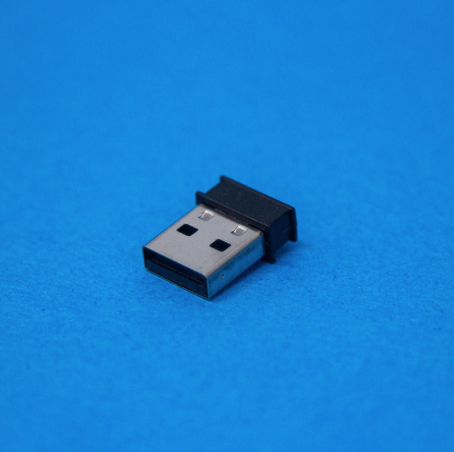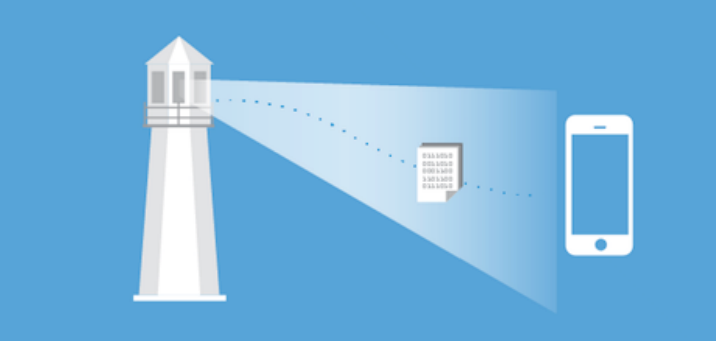Let’s say you are walking by your favourite coffee shop and you receive a notification on your phone screen letting you know that the caramel latte you are about to buy is 50% off today. How would that feel? Or maybe you are in the kidswear section at your favourite retail brand, looking for a present for your new born nephew, and you get a subtle reminder on your phone promoting discounted babies’ accessories on the opposite aisle. Worth taking a look?
In this post we’ll show what businesses can do with beacons when paired with Mobile Wallet passes. First and foremost, you need to get at least one beacon.
Beacons and functionalities
A beacon is a device that simply transmits a signal containing identifying details, in all cases an App (or Mobile Wallet) is required to trigger an action when in proximity of a recognised beacon.

Apple Wallet is able to react in the form of a passive notification on the users lock screen when in proximity of a beacon, however this does require them to have a pass installed on their device which has those beacons programmed within.
If you want to deliver more than a passive notification or don’t wish your users to install a pass, then they would need a custom app installed on their device specifically designed to deliver the content about your local facility when they pass that location.
See why we would not recommend building an app from scratch:
- Things to consider before developing an app.
- Are we in a Post App world?.
The exception of Eddystone URLs
The exception to the process described above is the Eddystone specification beacon. This type of beacon can also transmit a URL to a device, however the user still needs an app (a physical web browser) to display the URL. Currently this will need to be downloaded from the app store or by browsing through Google Chrome, but eventually physical web browsers will be built into many apps as standard.
Passes and Mobile Wallet
The second thing you need after beacons is a pass. Whether you are a souvenir shop, a gym, a big fashion brand or a bakery, you will need your customers to have a piece of content in their phones (in this specific case a pass). Passes are pieces of content that can assume the digital shape of a coupon, membership card, boarding pass, VIP card, store value card and basically any of the cards you normally store in your physical leather wallet.
To get started with an unlimited number of test passes, please visit this page. We also built this example guide you might find useful: How To Create Digital Membership Cards For Mobile Wallet [Full Guide]
Things you can do when beacons are paired with passes
So, how do beacons work with passes? Here’s a few options:
- Broadcast notifications about promotions, discounts and offers to customers who have your pass installed.
- Leverage precise location for increased proximity-marketing strategies.
- If your business or activity is mobile (ex. ice-cream van), you can install a beacon in your van to notify people located in the area you are covering on that specific day.
- On an event (ex. concert, exhibition) beacons can provide useful pieces of information to attendees.
- Car dealerships install beacons in cars, and when the potential new customer approaches the car, he or she receives the specifications about that model (this might require an app).
Important: As we get this question asked a lot though our customer support system, we want to specify that beacons do not deliver passes to phones. The beacon will deliver notifications only after the user installed a pass on his or her phone. The pass needs to be promoted and distributed first.
To find out more about Mobile Wallet content promotion and distribution, please check How to promote Mobile Wallet content Online and Offline.
This is the end of this article. If you have any comment or question, please feel free to leave your feedback in the comment section below.
Our recommendation
You might also want to take a look at the following article: how to distribute mobile wallet content via e-mail.















